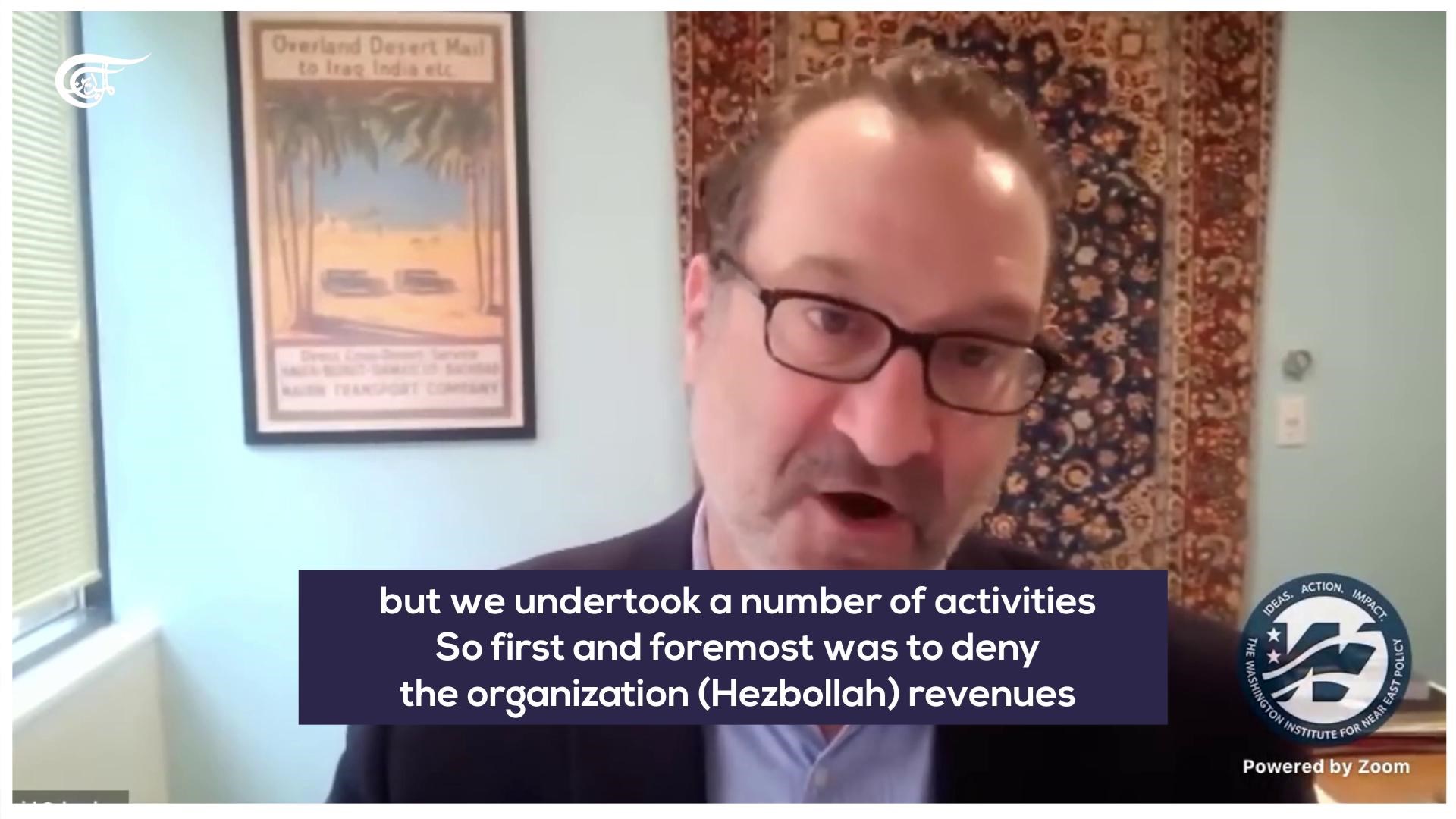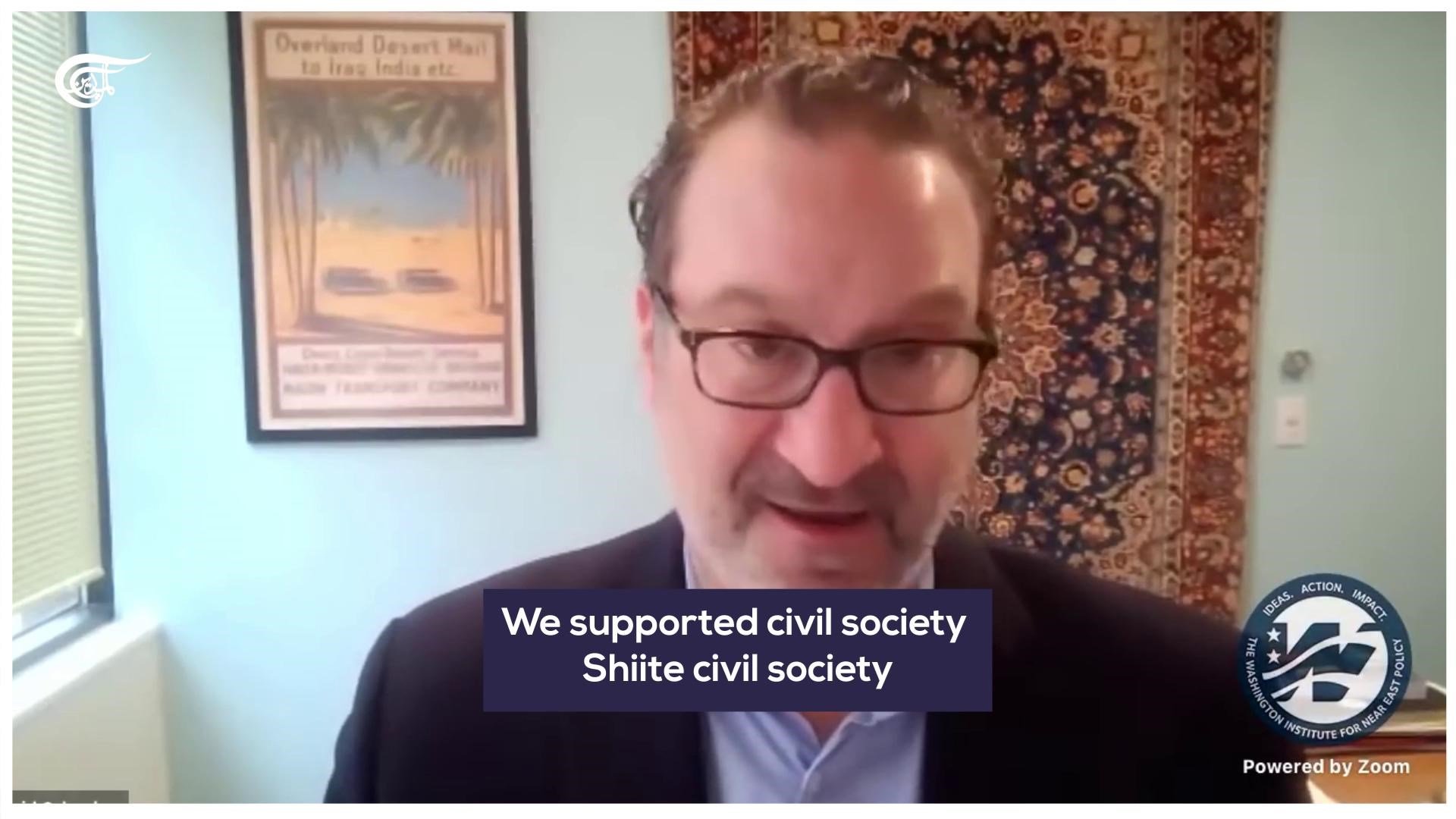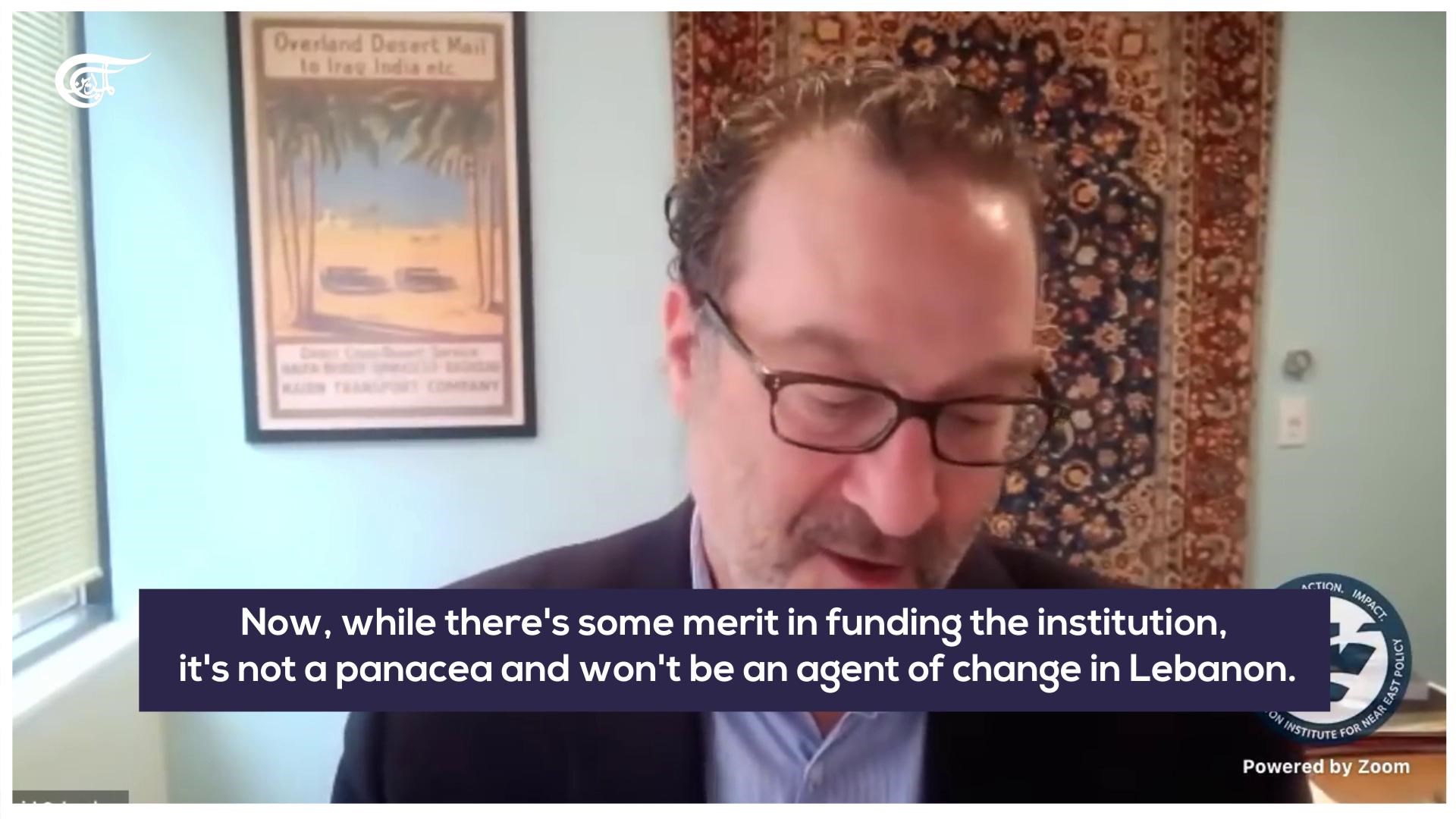Fact-checked: Video documenting David Schenker's statements on Lebanon
Al Mayadeen refutes the claims of David Schenker that the network misreported his remarks on Lebanon, most notably the US' role in exacerbating the country's economic crisis.
-

Former US Assistant Secretary of State for Near Eastern Affairs David Schenker
Former US Assistant Secretary of State for Near Eastern Affairs David Schenker spoke, on May 12, on the occasion of launching the latest book by Hanin Ghaddar, Friedmann Fellow in the Washington Institute's Program on Arab Politics, who focuses on Shia politics throughout the Levant. Robert Satloff, a researcher at The Washington Institute, moderated the seminar.
The former US Assistant Secretary made serious statements, ahead of Lebanon's parliamentary elections, about the US role played in the country by the administration of former US President Donald Trump in order to accelerate Lebanon's financial collapse, as well as the administration's exploitation of the "October 17" movement to distort Hezbollah's image and weaken it along with its allies.
Al Mayadeen had earlier published a news report about the symposium, but Schenker had reservations about the mechanism of its coverage through other media outlets, accusing the network of misrepresenting his own words. Following are video-supported excerpts from what he said during the meeting, which refutes his claims against Al Mayadeen.
Commenting on the US' role in supporting the so-called March 14 alliance coalition, Schenker detailed how the US orchestrated a maximum pressure campaign against Hezbollah to target its revenues saying, “So, we [the US] had a sort of multi-faceted strategy - I don’t know if we spelled it out as such - but we undertook a number of activities. So first and foremost, is to deny the organization revenues: We had the maximum pressure campaign which limited funding from Tehran to the organization cutting back, you know, 800-700 million dollars a year provided directly from Iran…”
Elsewhere in his remarks, Schenker boldly stated, “We also sanctioned Hezbollah financial institutions, like the Jammal Trust Bank, we are careful to do so, as we were waiting for Moody’s [Analytics] to come out with their credit ratings first that downgraded Lebanon, and the day after, we piled on and did Jamal Trust but we weren’t responsible for the downgrade, so we raised the cost as well for Hezbollah’s allies. We designated some of Hezbollah’s most corrupt allies including, as pointed out earlier, Gibran Bassil – the president’s son-in-law. The message, I think, in this regard, is clear."
-
Fact-checked: Video documenting David Schenker's statements on Lebanon
On the course the US followed to undermine Hezbollah's very presence, Schenker said, “We [the US] looked for political opportunities: We saw an opportunity to deal Hezbollah a symbolic defeat in the municipal elections. We know about what happened in 2016 with Beirut Madinati in municipal elections, and we wanted to build on this, understanding primarily that it’ll be symbolic. But, nonetheless, you know, affirming that this organization is not 10 feet tall.”
On the US’ attempt to infiltrate Hezbollah’s arena of popular support, he said, "We cultivated Shiite businessmen. So during my tenure as Assistant Secretary of NEA [Near East Affairs], I traveled to Lebanon twice or three times. On all occasions, I had public dinners with Shiite businessmen opposed to Hezbollah that were organized by my dear friend, Lokman Slim.”
He has also affirmed that “the idea was to promote economic opportunities in Shiite areas to help wean the community from its dependence on Hezbollah, and we worked hard at that and I think we made some initial progress, that for a number of reasons, including the port blast, could not be sustained."
“We supported civil society – Shiite civil society – so I met with creative members of the Shiite civil society opposed to Hezbollah’s’ authoritarianism. I met with Shiite journalists, people who wrote for Janoubia, a great online site in the south that reports on Hezbollah’s corruption and repression," Schenker claimed.
-
Fact-checked: Video documenting David Schenker's statements on Lebanon
Projecting on one of the speaker's ideas regarding Hezbollah's status, Schenker said, “So the phenomenon that Hanin describes so well, I think, is an opportunity for, regardless of whether it's Republicans or Democrats in Washington that the administration should look to exploit.”
The US diplomat admitted that the US funded the Lebanese Armed Forces (LAF) by saying, “Now, the alternative to that is the default US policy of basically funding the Lebanese Armed Forces (LAF), underwriting the military in the hope that somehow this will mitigate towards stability in Lebanon. Now, while there's some merit in funding the institution, it's not a panacea and won't be an agent of change in Lebanon."
“The LAF won’t prevent state collapse or another Hezbollah war with “Israel”. The focus of the LAF absent the approach to Hezbollah is a recipe for continuation of the status quo, or more likely a further deterioration and ultimately the destabilization of Lebanon," he claimed.
-
Fact-checked: Video documenting David Schenker's statements on Lebanon
Regarding the 2022 parliamentary elections in Lebanon, he said, “But, what I do know, is that the opposition is incredibly divided, brimming with narcissistic or individualistic leaders who are more interested in being the head of their individual parties than getting together and overthrowing a corrupt elite. And so they have something like 100 parties running - the normal parties and then all these other smaller parties. And my guess is they're going to eat their own and we're not going to see them gain a great deal of seats to shift the balance”.
He concluded by commenting on the US multifront war to shrink Hezbollah's authority by saying, “That’s exactly my point, which is you have to work to push back on this group [Hezollah] on all fronts. And that part of that is going after them in Lebanon, supporting people who are willing to stand up to them, and then going after Iran economically or in other ways, putting pressure on them. They don't get a free pass from creating all these militias, planting them that are destabilizing or destroying their countries.”
Several Lebanese parties have long warned against the role the US is playing in the Lebanese arena of politics and the fact that Washington was making every effort to incite strife and favor a party over another based on its whims and own narrow interests. Schenker's words expose the US interference in Lebanese politics, not to mention the substantial role it played in exacerbating the economic crisis the Lebanese have been under since 2019.

 6 Min Read
6 Min Read











